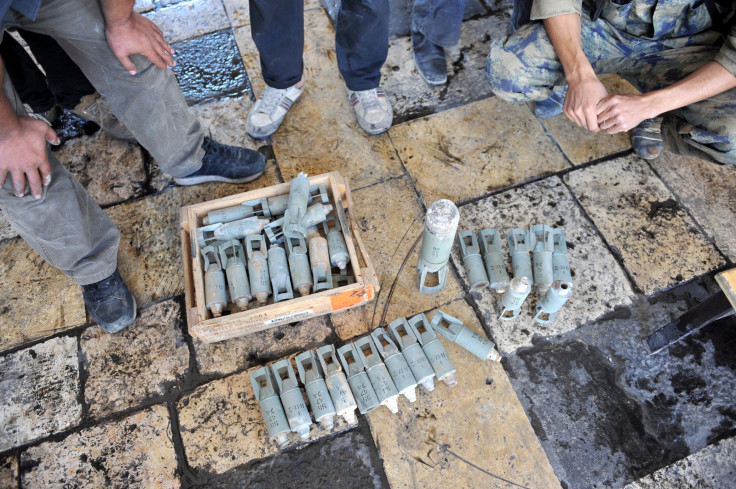Isis Cluster Bombs Kill Civilians in Syria Including Children

Jihadists with the Islamic State (IS) have used cluster munitions against Kurdish targets in northern Syria, resulting in civilian casualties including the death of a child, rights groups said.
Human Rights Watch (HRW) said that "credible evidence" suggests that Islamist militants with the group previously known as Isis used the banned weapon on at least two occasions in recent weeks.
"Based on reports of local Kurdish officials and photographic evidence, forces of the Islamic State ... used cluster munitions on July 12 and August 14 during fighting around the Syrian town of 'Ayn al-'Arab, also known as Kobani in Kurdish, in Aleppo governorate near Syria's northern border with Turkey," HRW said.
IS militants have been fighting Syrian Kurdish YPG forces in the area for more than one year.
In the first incident, four YPG fighters were killed by a ground-fired cluster munition, Kurdish officials said.
Later in August, an 11-year-old was killed and his eight-year-old friend wounded, as a "small cylindrical submunition with a bright red ribbon" they picked up from the ground detonated.
The submunition was of the kind typically carried by cluster devices, which are designed to explode in the air and spread their deadly content over a wide area, HRW said.
If they fail to explode upon initial impact, these "bomblets" act like landmines, setting off when handled.
IS was not previously known to have used cluster munitions, which have instead been allegedly employed by government forces since the start of the civil war.
However, HRW noted that Syrian government forces do not have troops in the area and no airstrikes were reported in that period.
Kurdish official denied YPG forces have cluster munitions and HRW said they found no evidence to refute the claim, leaving the Islamic State as the sole and prime suspect.
"Human Rights Watch does not know how the Islamic State acquired these cluster munitions," the group said.
IS has overrun several Syrian military bases in recent months.
"Any use of cluster munitions deserves condemnation, but the best response is for all nations to join the treaty banning them and work collectively to rid the world of these weapons," said Steve Goose, arms division director at Human Rights Watch and chair of the Cluster Munition Coalition (CMC).
Syria is not a party to the 2008 Convention on Cluster Munitions that bans the weapon and requires member states to destroy all stockpiles clear of contaminated areas.
© Copyright IBTimes 2025. All rights reserved.






















